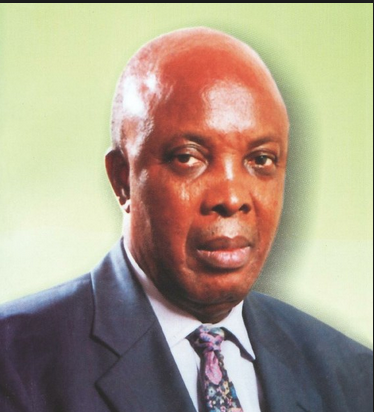
Ayida, The Super Permanent Secretary, Goes Home

Mr Allison Akene Ayida, Alhaji Ahmed Joda and Chief Phillip Asiodu were among the quintessential post-independence and early military era bureaucrats for whom the late Alhaji Babatunde Jose of the glorious Daily Times newspapers of yore coined the phrase ‘Super Permanent Secretaries’. And it stuck on them and defined their immense relevance in the civil service. They earned it and, as events began to unfold, they became references in what it meant to be a civil servant. The appellation, coined in admiration of how they applied themselves to their jobs in which they guided the nation altruistically, trailed them even to their retirement. In service and by doing simple things that made the greatest impression,
they put a shine on their qualities as leaders in their own right. While political issues regarding the intrusion of the military in governance were strenuously resolved, Ayida and his contemporaries pressed on with the nitty-gritty of state matters that made all the difference in the nation’s administrative machinery. Ayida, in particular, a political economist and administrator, rose to become the fifth secretary to the government of the federation and head of the civil service between 1975 and 1977, a rare combination even in those days. Before then, He was an assistant secretary in the Ministry of Finance and later permanent secretary, Ministry of Economic Development and Reconstruction.He had the rare honour to serve under and work closely with seven successive heads of state and government. The late Dr Nnamdi Azikiwe, on the recommendation of the late Prime Minister, Sir Tafawa Balewa formally appointed him to act as permanent secretary in July 1963 and he served as Permanent Secretary when the late General Aguiyi Ironsi was head of the Federal Military Government in 1966. Ayida worked closely with Alhaji Shehu Shagari as Permanent secretary to the ministries of Economic Development and the Finance when he was the federal commissioner for both ministries under General Yakubu Gowon. As secretary to the Federal Military Government and head of service, the super permanent secretary served under General Gowon, General Murtala Muhammed and General Olusegun Obasanjo. In 1987, at a lecture he delivered at the University of Jos, he made some remarks that are still relevant today. He felt a sense of doom and a shadow of doubt hanging over the nation and pointed out that the pervasive human misery around then, as it is still today, compounded the processes important in nation building. Specifically, he expressed worry about what he described as the immiserating situation of the rural poor and the pulverization of urban dwellers as demonstrated in apparent lack of collective will to survive and wondered how the urban poor survived in 1987. Curiously, this is 2018 and that feeling is still ever so glaring.
As a solution, he made a statement that the present crop of leaders need to adopt in their search for a way out of the nation’s economic quagmire. In his opinion, which we recommend to the present leadership, Nigeria must learn more from the lessons of history and experience and rely less on experts and economists from the International Monetary Fund (IMF) and the World Bank who do not have practical experience or sufficient knowledge of the Nigerian situation. He regards the overbearing preoccupation regarding an economy in depression, especially the fall in petroleum production and pricing, as a blessing in disguise. This view still subsists till date among analysts who think that diversification of the economy will provide a sustainable leeway out of the persistent inconsistencies in the nation’s growth pattern and trajectory.
His prognosis that we, as a people, must begin to face, in a more realistic manner, the challenges embedded in the effort to re-examine the great issues that face Nigeria as a nation is as relevant then as it is indispensable today. He also stated that if the petro-naira were still flowing, many would have thought that the Nigerian nation was endowed with great statesmen and leaders of men at the helm of affairs. Now is the time, he said, for the nation to pause and think of the basic issues at stake. This newspaper has taken the trouble to recall the views of one of the best bureaucrats the nation has ever produced just to emphasise the point that his generation applied informed reason to statecraft and came up with policies that, if followed up by successive leaders, would have saved the nation its present predicament of motion without movement in governance. Born on June 16, 1930 in today’s Delta State, young Ayida schooled at King’s College, Lagos, Queen’s College, Oxford, England as well as London School of Economics and Political Science. He was aged 88. May his soul rest in peace.
https://ift.tt/2ITTmY7from Tumblr https://ift.tt/2pQphQs
via IFTTT
No comments:
Post a Comment
Finish Reading ? Make Your Comment Now..!